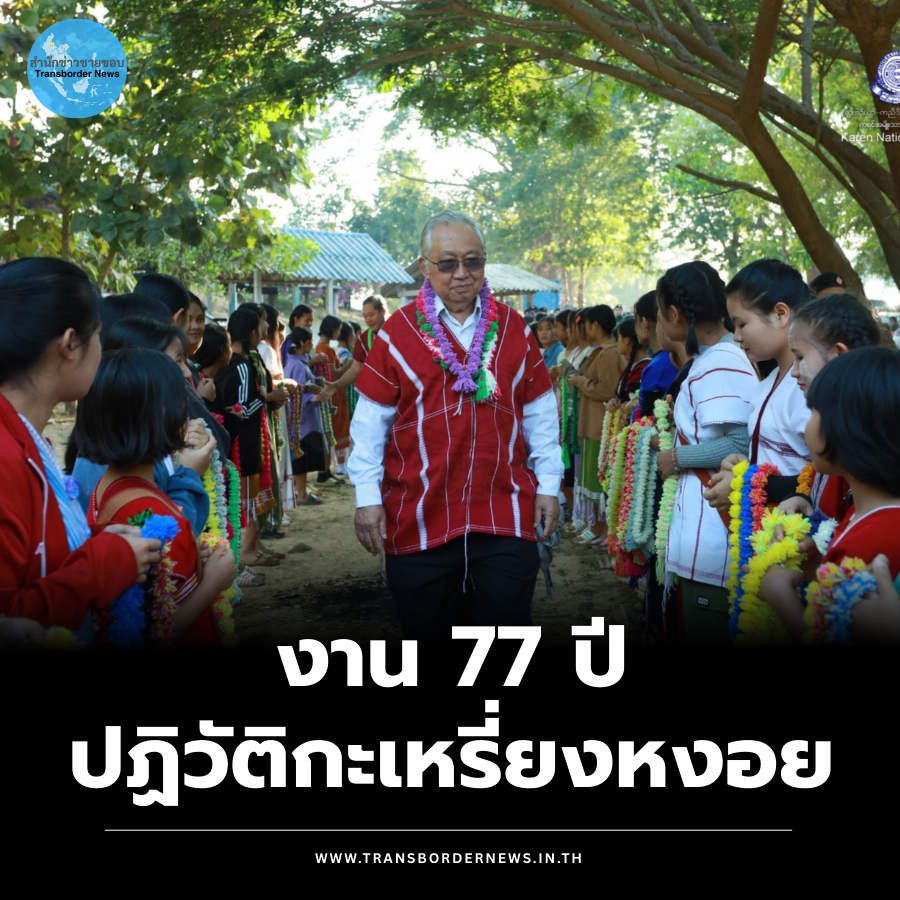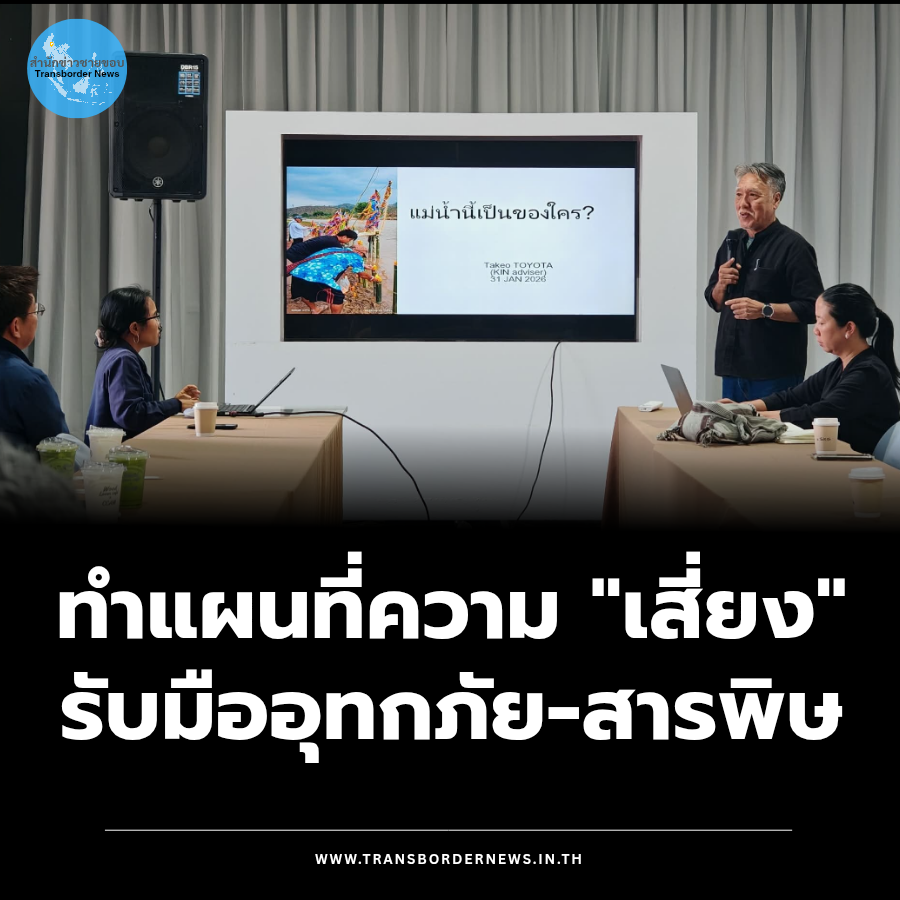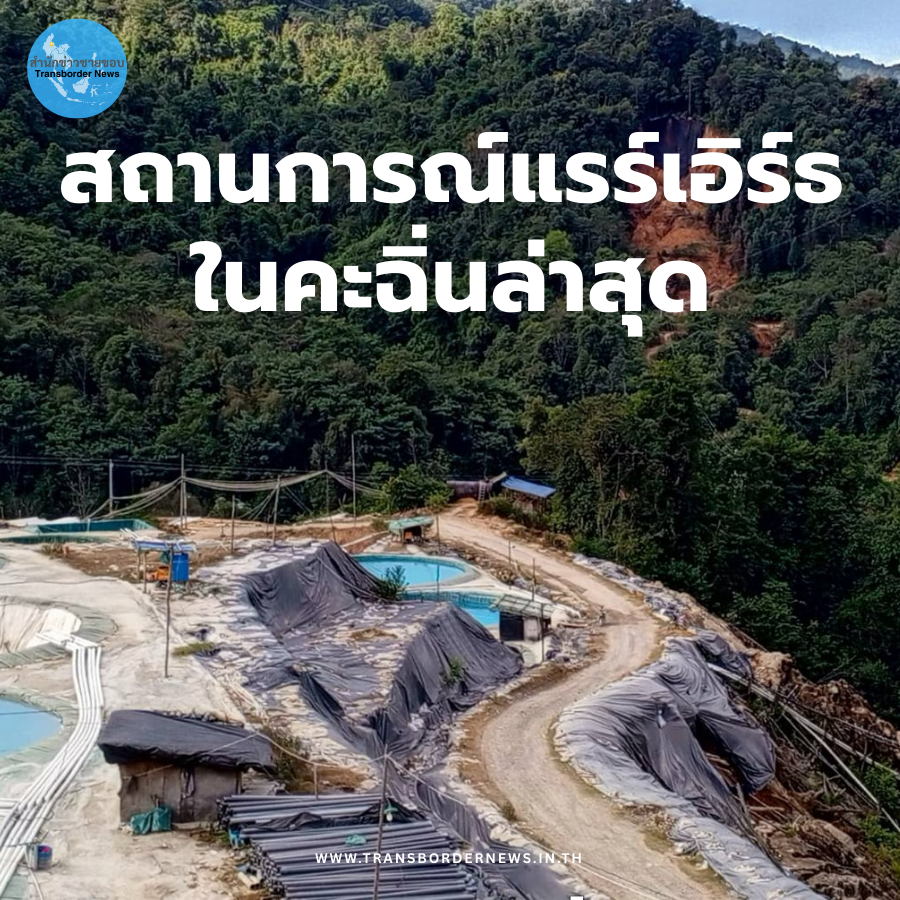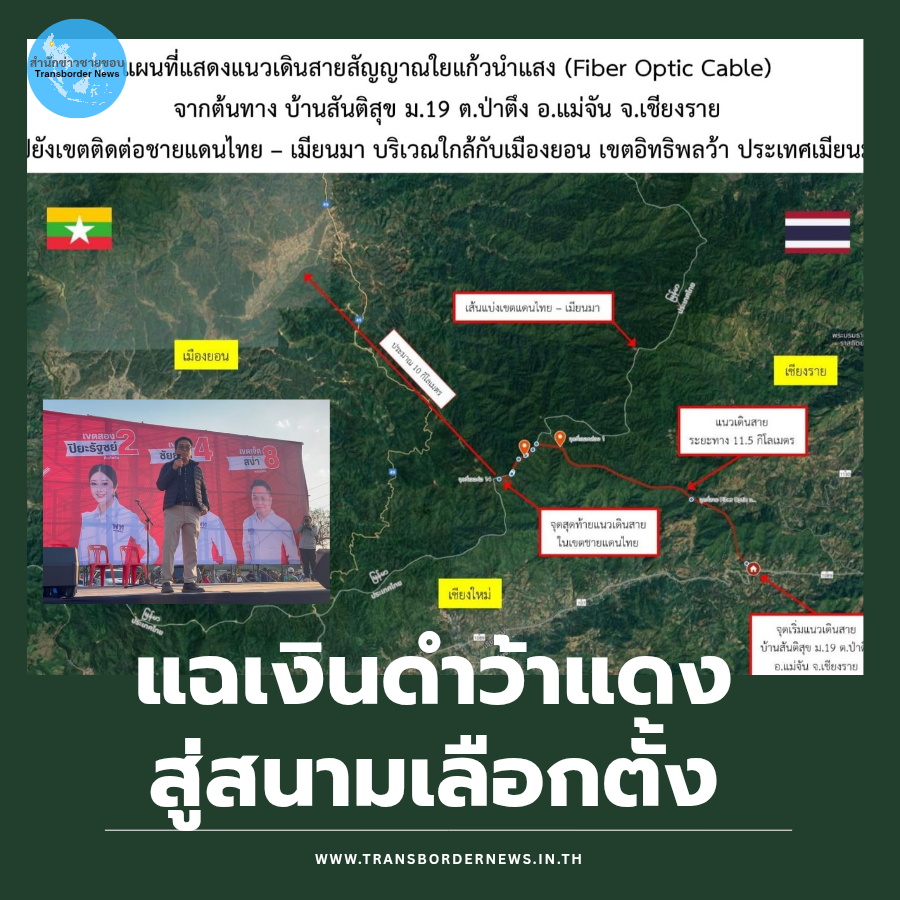Interview with “Gen. Baw Kyaw Heh”, Karen National Liberation Army (KNLA)
By Paskorn Jumlongrach
Transborder News: The armed conflicts in Kayin or Karen State, or Kawthoolei, between the Karen National Liberation Army (KNLA), an armed wing of the Karen National Union (KNU) and the Myanmar military regime have escalated progressively, albeit this time will be different from the past.
Previously, it was often the Myanmar military regime who initiated the offensives and occupied military barracks of the KNLA and land controlled by KNU. In the aftermath of the Myanmar Army’s latest coup, it became a pivotal point since the people of Myanmar have risen up to oppose their own national armed forces which has seized power from the people and have perpetrated gross human rights violations. The heavy crackdowns have prompted people to go underground and formed their armed groups to fight against the Myanmar armed forces. Many have received military training with help from the ethnic armed organizations.
Just three years after the coup, the battlefield in Myanmar has been tilted as the ethnic armed organizations have joined hands with the groups opposing the Myanmar Army, particularly the People’s Defense Force (PDF), and were able to topple the Myanmar soldiers from their barracks and demolish the ruling power in various ethnic states throughout the country.
It has been speculated that the Myanmar Army’s weaknesses could be attributed to various factors including the isolation of various ethnic groups making them to gain more leverage over the Myanmar Army.
Karen State is one of the strongholds where the PDF actively operates with the KNU armed forces. Nowadays, it is more common for the Karen people to set sail in the Salween River that borders Mae Hong Song to hoist a Karen flag together with a Thai flag on their vessels since at least 14 Myanmar military barracks along the river have been dislodged.
Similarly, along the Karen-Thailand border from Tak to Kanchanaburi through to Ranong, the influence of the Myanmar military regime has been steadily retreating from such border.
One of the most powerful and popular commanders of the Karen people is Gen. Baw Kyaw Heh, deputy commander-in-chief of the Karen National Liberation Army (KNLA).
In his 60’s, Gen. Baw Kyaw Heh continues to hold the leadership of the KNLA’s Brigade 5 which occupies the banks of the Salween River. It is a strategic area of the Karen State, Karenni State and Thailand.
The KNU’s Brigade 5 has not only toppled the Myanmar armed forces from the area, it has become a key reinforcement force of the Karenni Army (KA) during the attacks against the Myanmar military outposts in Karenni State. As a result, the combined forces against the Myanmar Army in Karenni State have been able to extensively push the Myanmar regime’s army from the area, and are ready to announce their new ruling system for the Karenni people.
“The Karen Army’s mobilization aims to liberate the land. Such freedoms can either belong to an individual state, or a federated state” said Gen. Baw Kyaw Heh in an interview with “Transborder News” regarding the goals to fight the Myanmar Army as many are still unclear as to how extensive this armed conflict can expand.
“Being an individual state, or a federated state, it is most important to start from regaining the administrative power. It’s yet time to talk whether we will become an individual state or a federated state. What we’ve got to do now is to regain the liberation of our land. Then, there will be a time when we collectively make further decision. We have to ensure that our people are safe and the Myanmar regime will certainly doom. In sum, we are fighting for the freedoms of land”.
According to the KNLA’s veteran commander, we have to first win the war and set a good foundation. Without a good foundation, the prospect of winning is slim. The debate about federalism can go on and on. We have been fighting for more than 70 years, and it is yet clear if we can establish a federated state in the next 70 years. If we do not win and we do not set a good foundation. And if we win the war and set a good ruling foundation and ensure freedoms in our land, then, we can collectively establish our federated state. Right now, we have yet to achieve the goal. The issue of federalism is a talking point that has not been realized.
Asked about the chance to negotiate with the Myanmar military regime, Gen. Baw Kyaw Heh said “If they want to negotiate, so do we. But as long as the armed conflicts continue, we have to keep fighting. If a negotiation has taken place and nothing has been implemented, nothing has been done, we cannot achieve the goals of such negotiation. After a negotiation, we need to follow it through. But if we need to fight, we can also negotiate while fighting.”
“For example, if we still fail to establish a proper administration and are still unable to establish a good governance in our land, there is no need to talk about federalism since it cannot be established as well. Similarly, if we cannot individually conduct our life in peace, peace shall not prevail. Therefore, after a negotiation, it has to be followed through. If there is only the talking part, without any action to follow through, peace cannot exist. We can talk until we can accept and agree on something mutually. It’s fine to talk but, if necessary, we are ready to fight as well. Eventually, what has been talked has to be implemented as well. Without following it through, the talk will be futile. What follows a talk should be the implementation part.”
Gen. Baw Kyaw Heh repeatedly reiterated that the negotiation with the Myanmar junta has to stem from genuine desire of both parties. And what KNLA is committed to is the toppling of what is wrong and vicious while establishing the good thing. We will persist until the Myanmar junta can take it no more and ask for a negotiation.
“We have been talking for more than ten years, and still we engaged in the fight. Even if we talk for three months, we still need to fight each other. Or if there is a one-day-negotiation, we will still have to fight each other. This is what happened in reality. We might talk for a couple of days, but if no agreement can be reached, we have to resume the fighting. Under Gen. Bo Mya in 2004, we paused for three months to negotiate. But as the talk did not bear fruit, we had to resume fighting. We have been going through various rounds of talk and fighting for ten years. Eventually, we have to resume the fighting. We won’t waste time for that anymore.”
At present, there have been calls for a third country, be it Thailand, ASEAN, China, or Western countries, to help lead a negotiation between the Myanmar military junta and the ethnic armed organizations, but such move does not seem realistic.
“The coordination can be made among ourselves, or it can be made through a mediator. In the past, the Myanmar military regime could coordinate directly with us. Later, they have asked for help from a mediator. It could be done either way. Given the current situation, it might be better to have a mediator. Although in reality, both ways can be done and both are good solutions. If we adhere to a proper protocol, it would bear a good outcome.
“The Myanmar junta has to protect its interest, and so do we. A mediator would also have to serve its own interest. If each one of us only looks for our own interest, such effort will become futile. We need to take into account our mutual benefits. What we should do, and what we should not do. We need to have a good view of the situation and bear in mind the consequences of our actions.
Gen. Baw Kyaw Heh said that it might be necessary for a foreign nation or government to intervene since we cannot live separately. Each ethnic group has to collaborate. Each country needs to coordinate as well.
Asked about the current onslaught of armed conflict and how confident he is that it is the time the Myanmar regime is at its weakest state, the KNLA’s deputy commander said that “During our fighting, we are confident that we will win. We fight for what is right and believe that we will win someday, sooner or later. If we do not win, it means we might not have fought properly. Of course, our weaponry is not ready, and we need to seek cooperation from other ethnic armed organizations, and it might be challenging to cooperate with some of the groups. But we can achieve such cooperation, everything will soon be done. And we will soon achieve our goals.”
“We are hopeful that we can achieve a better cooperation. Even though, we are yet to fight in unison, but in the future, we can orchestrate our operations together. In such orchestrated effort, Myanmar military regime may first start the fight with the first group, and followed by the second group, and then the third group, respectively. There could be some constraints in terms of the readiness of each of our groups. Even though, we may not be able to operate in such concerted manner, but there is some cooperation among us, it is possible for each one of us to time our fighting in a more simultaneous fashion.
“For example, in the past, when one group engaged in fighting, the other group would stay idly. But now, we can see that when a group engages in fighting, the second group would launch the attack as well, so does the third group. There is more unity among us in terms of the launching of our attacks. It has reached the point where the people of Myanmar have uprisen against the Myanmar military. Even though, we may yet fight in a concerted manner, but given the spirit we share, we can improve to time our attacks in unison. In the future, if we can cooperate better, our powers will become more formidable.”
It has been speculated that 2024 will be a make-or-break time between the various ethnic armed organizations and other opposing forces against the Myanmar military regime, particularly during this dry season, it is expected that large-scale armed conflicts will take place and will shape the future of Myanmar.
“Whether the war will end this year or not, I cannot say anything” said Gen. Baw Kyaw Heh as he still refrains from offering his opinion on this issue. He, however, said that “This year is a good opportunity for the ethnic armed organizations and we have now the advantage. But whether this will lead to the demise of the Myanmar regime or not, I cannot say anything about that.”
“Some said the war will end this year. Personally, I think it won’t end just this year, although the format may change. In 2024, I cannot say it will the year of downfall for the Myanmar military, although it is a good opportunity for all ethnic organizations to work toward their liberation and peace and what each of them wants.”
The Karen Army’s commander reiterated that “the Myanmar regime has to be toppled from our land since they cannot serve the interest of our people. As I have said earlier, what is bad to us has to be rid of. What is wrong has to be righted. And we will lay the good foundation for our land.”
——
This is a translation of original Thai article https://transbordernews.in.th/home/?p=37589










